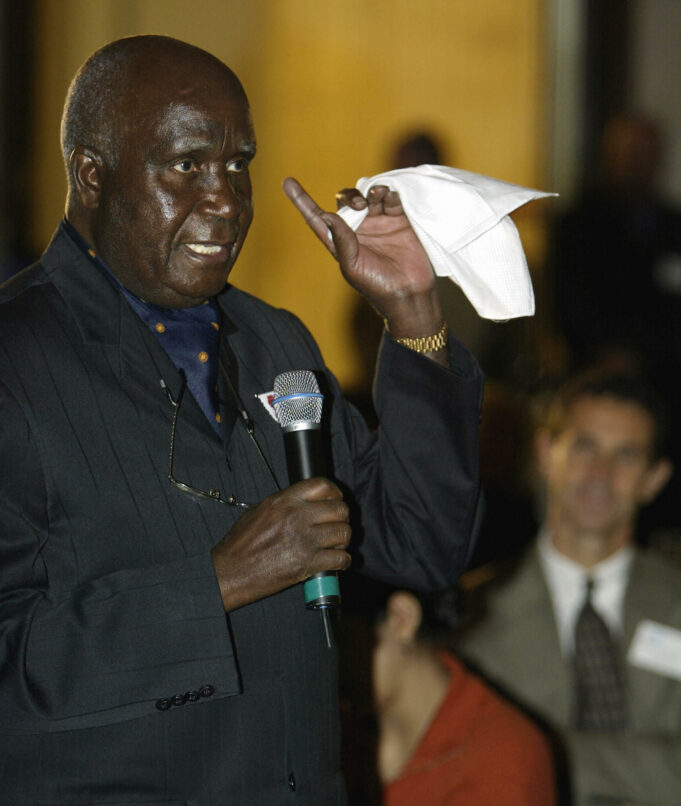Kenneth Kaunda, the former president of Zambia and the last giant of Africa’s frontline leaders in turbulent struggles against colonialism and foreign domination of the continent, has died. He led the southern African nation to independence and governed from 1964 until October 1991. He was 97-years-old.
It has been said that the contribution and life’s meaning of consequential figures can best be judged and determined after a period is put to their existence. This is especially true with the passing of Dr. Kaunda on June 17. His nearly 100 years of life and many decades of service spoke volumes to those who are now assessing his work.
On behalf of the Nation of Islam, his family and himself, the Honorable Minister Louis Farrakhan sent condolences and deep sympathy to the people of Zambia, Africa and the Black world on the passing of a giant, a peacemaker, Kenneth Kaunda.
“Allah says, He will never waste the work of a worker, male or female,” said Minister Farrakhan of Dr. Kaunda.
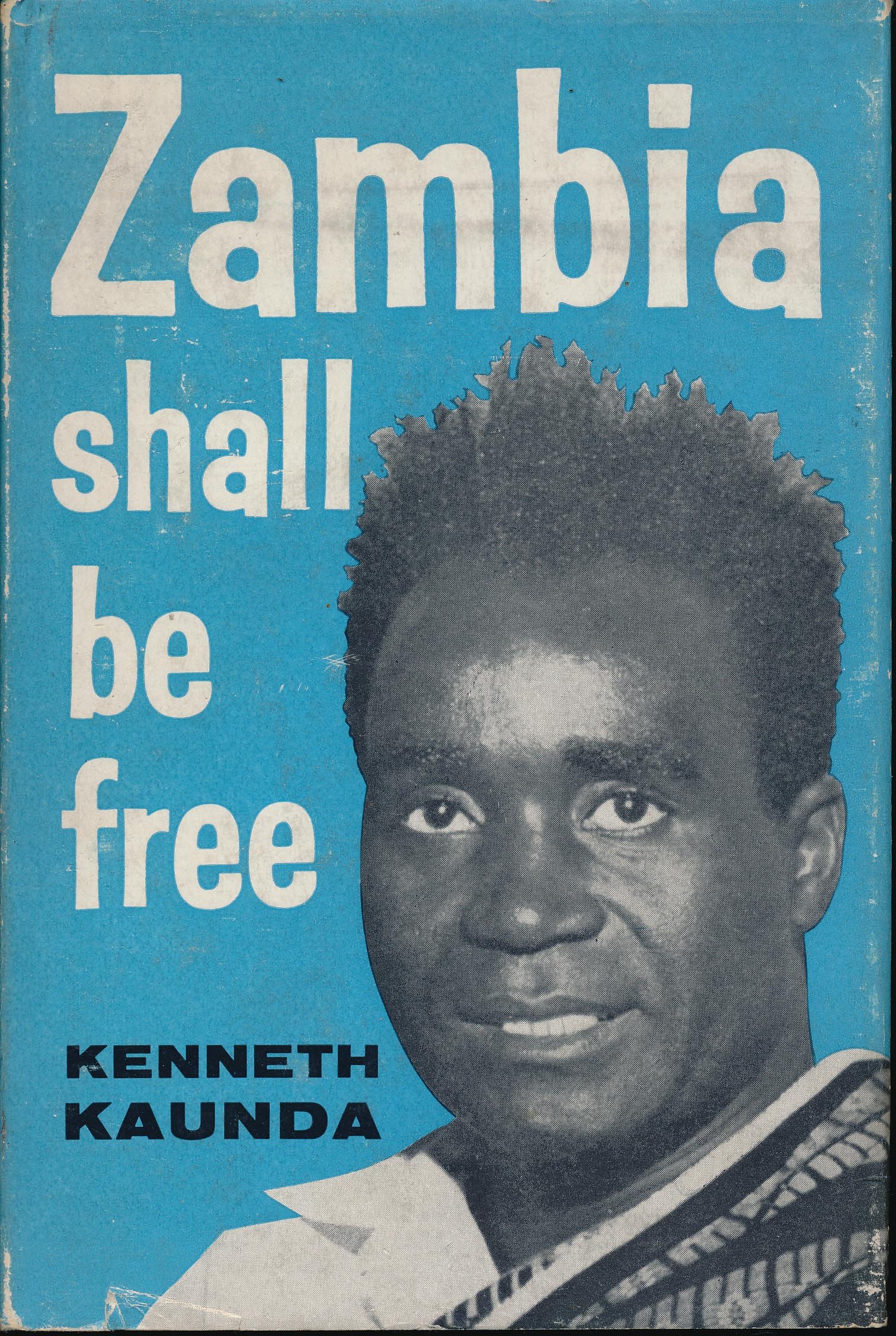
“Brother President Dr. Kenneth Kaunda was one of these rare individuals who lived their lives in service of others, hoping to see the world better on his leaving it. Better than it was on his coming to birth,” said Minister Farrakhan, reflecting on the statesman.
The Muslim minister described Dr. Kaunda as a principled leader not snared by vain motives that often rule those in authority who act for “personal gain” and vain considerations of their legacy.
Without doubt Dr. Kaunda, never seen without his signature white handkerchief clutched between his fingers like an Italian fazzoletto, was distinctly African. He was famous for being uncompromisingly strong for the plight of Africans and suffering people across the earth and was found many times in the crosshairs of Western powers. He was a freedom fighter who helped transform White-ruled Northern Rhodesia, a bastard child of British imperialism, into Zambia, an independent African nation.
Minster Farrakhan expressed high regard for the late leader he was “honored in life to meet” and interact with on several occasions in Africa. Dr. Kaunda was also an advisor and counselor with the Muslim leader on at least two peace missions concerning crises in Sudan and the Democratic Republic of the Congo.
On the recommendation of the late President Jerry John Rawlings of Ghana, Minister Farrakhan met with Dr. Kaunda when asked to help resolve the conflict in the Congo. Dr. Kaunda was an adviser and counsel to Minister Farrakhan on the Sudan issue.
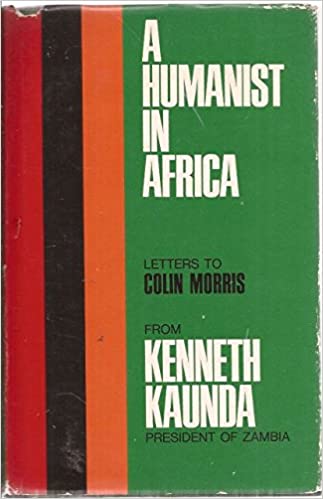
Dr. Kaunda was one of a number of leaders Minister Farrakhan interacted with on challenges that faced African nations.
The endeavors bore witness to the respect Dr. Kaunda was given as an elder statesman who leaders on the troubled continent looked to in the years after he left office.
These historic efforts, however, were sabotaged by the United States government that did not like the idea that African leaders opened the door for Minister Farrakhan to have input in their peace processes.
During these missions, Minister Farrakhan and his international representative, Abdul Akbar Muhammad, met with Presidents Rawlings in Ghana, Abdoulaye Wade in Senegal, Daniel Arap Moi in Kenya, Sam Nujoma of Namibia and Alpha Konare of Mali and ex-president—at the time—Daniel Ortega of Nicaragua who was on the continent meeting with Libyan leader Muammar Gadhafi.
Dr. Kaunda offered words of guidance before a meeting in Uganda with President Yoweri Museveni and talks with southern Sudan opposition leader John Garang and then President Omar Bashir of Sudan in Khartoum. America’s foreign policy and the question of unequal resource distribution within Sudan was at the root of a civil war that Minister Farrakhan and Dr. Kaunda were aiming to end. Although a deal was struck for a meeting between Mr. Bashir and Mr. Garang to establish peace, America interfered in the effort.
Dr. Kaunda’s death was announced by Zambian President Edgar Changa Lugu who called the legendary statesmen a “true father” who inspired the nation.
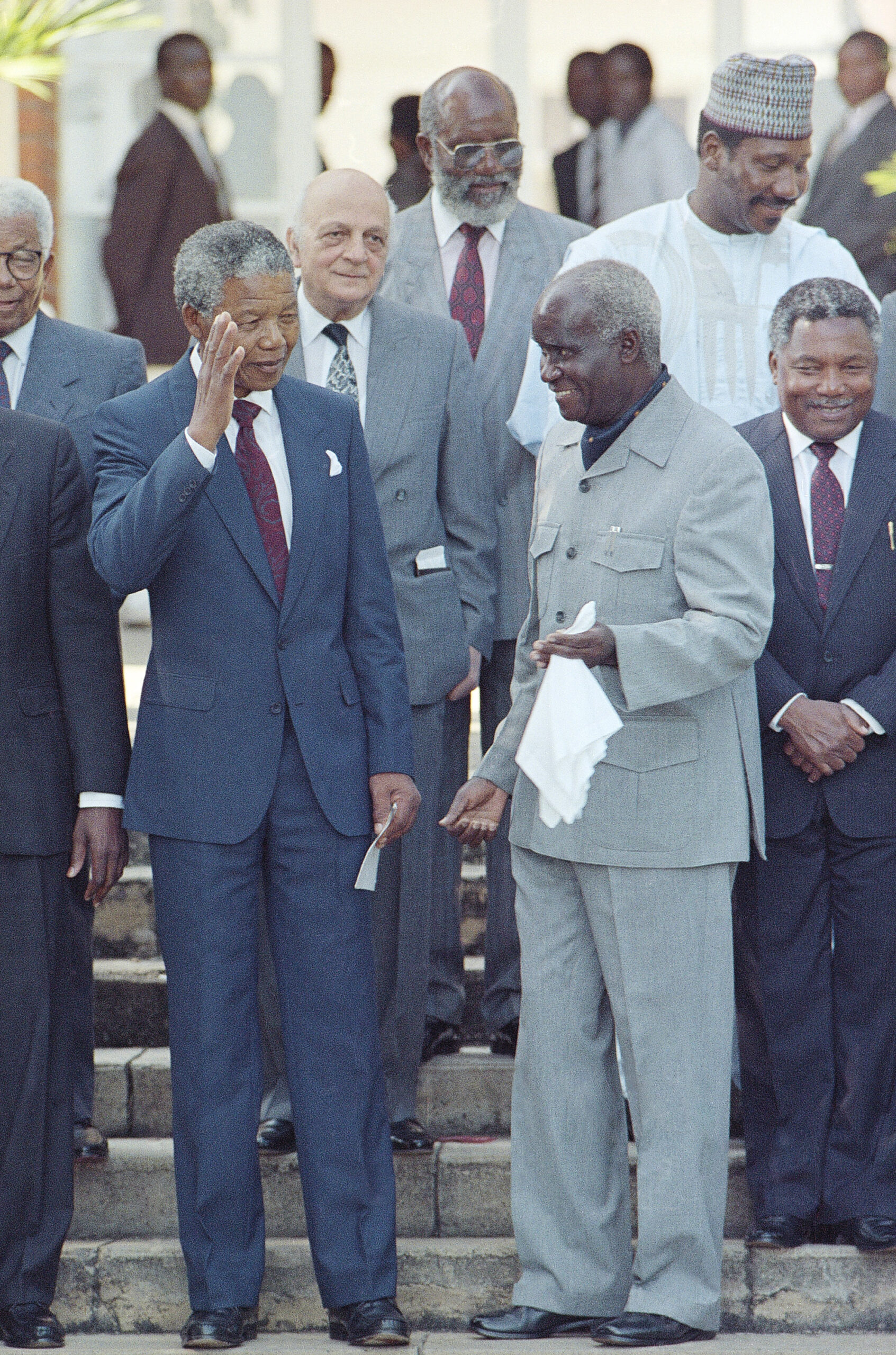
“You stood as a pillar for our nation, a true champion for humanity, and a fountain of wisdom for thousands across the continent of Africa and beyond,” said President Lugu.
“We as a nation embraced you as our father, heaven has embraced you as a son,” he said, lauding Dr. Kaunda as a true freedom fighter who selflessly fought for the oppressed.
President Lugu declared 21 days of national mourning and implored Zambians to uphold the legacy of peace, love, and unity that Dr. Kaunda fostered.
During the mourning period the Zambian government announced Dr. Kaunda’s remains will travel to all provinces in a farewell procession from June 23 to July 5. Citizens will be allowed to view his body in each state capital as he lies in state. An official state funeral will be held July 2 at the Heroes Stadium in Lusaka where international dignitaries will pay their respects followed by a private family burial on July 7.
Dr. Kaunda died at Maina Soko military hospital in Lusaka of pneumonia. His administrative assistant Rodrick Ngolo informed media outlets of the diagnosis, dispelling circulating rumors claiming “KK,” as he is known by Zambians, succumbed to Covid-19.
He is being remembered as a towering figure whose strength, tenacity of will and sacrifice benefitted the entire African continent.
“He embodied the true sense of Pan-Africanism, placing his own country Zambia at grave risk in order to provide safe harbor for the liberation movements of Southern Africa as well as its peoples,” said Moussa Faki Mahamat, chairperson of the African Union Commission in a statement.
“The African Union stands in solidarity with the Kaunda family, the people and the Government of the Republic of Zambia as we mourn and honor the life of a freedom fighter, statesman, visionary and liberation struggle icon,” he said.
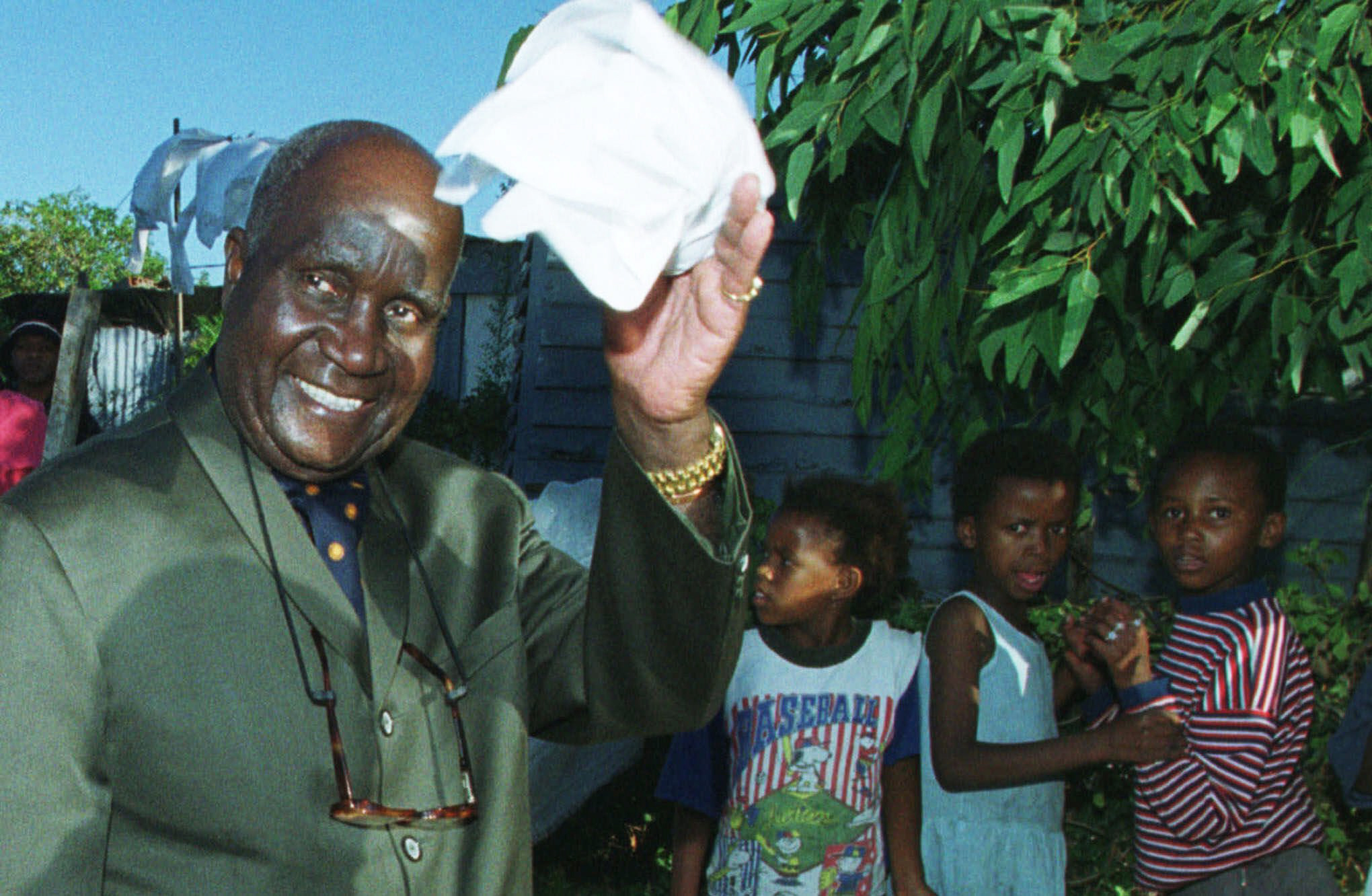
President Kaunda was a founder of the Organization of African Unity that eventually became the African Union.
Comrade, servant, soldier for resistance
In the last century, Dr. Kaunda and other leaders led and supported years of African resistance against White minority rule, colonialism, neo-colonialism, imperialism, and outside control of the resource rich continent.
Dr. Kaunda is now etched in the pantheon of his African contemporaries and continental compatriots. He joins the list of greats like Kwame Nkrumah of Ghana, Ahmed Sekou Toure of Guinea, Gamal Abdel Nasser of Egypt, Julius Nyerere of Tanzania, Ahmad Ben Bella of Algeria, Muammar Gadhafi of Libya, Samora Machel of Mozambique, Joshua Nkomo and Robert Mugabe of Zimbabwe, and South Africa’s Nelson Mandela, Oliver Tambo, and Walter Sisulu, to name a few.
Dr. Kaunda believed in African solidarity and practiced words from scriptures that he often quoted: “Do unto others as you would have them do unto you and love your neighbor as you love yourself.”
He was chairman of The Frontline States, an alliance of African countries from the 1960s to 1990s committed to ending apartheid and White rule. He rallied global support and pushed for economic divestment from the repressive, White-ruled countries.

He allowed Zambia to be an operational base for guerilla movements from Azania, or South Africa, Mozambique, Zimbabwe, and Angola, and provided exiles political protection and armed resistance training.
“Under KK’s leadership, Lusaka … became the capitol of African resistance,” explained Dr. Gerald Horne, professor of history and Africana Studies at the University of Houston.
Such African unity angered Europe and their settler colonialists in Africa.
“Zambia suffered as a result. They were repeatedly bombed by apartheid South Africa … repeatedly bombed by similarly racist Rhodesia—now Zimbabwe,” said Dr. Horne. “KK stood tall during that time; refused to bend, refused to yield.”
“Certainly, he will surely be missed,” added Dr. Horne.
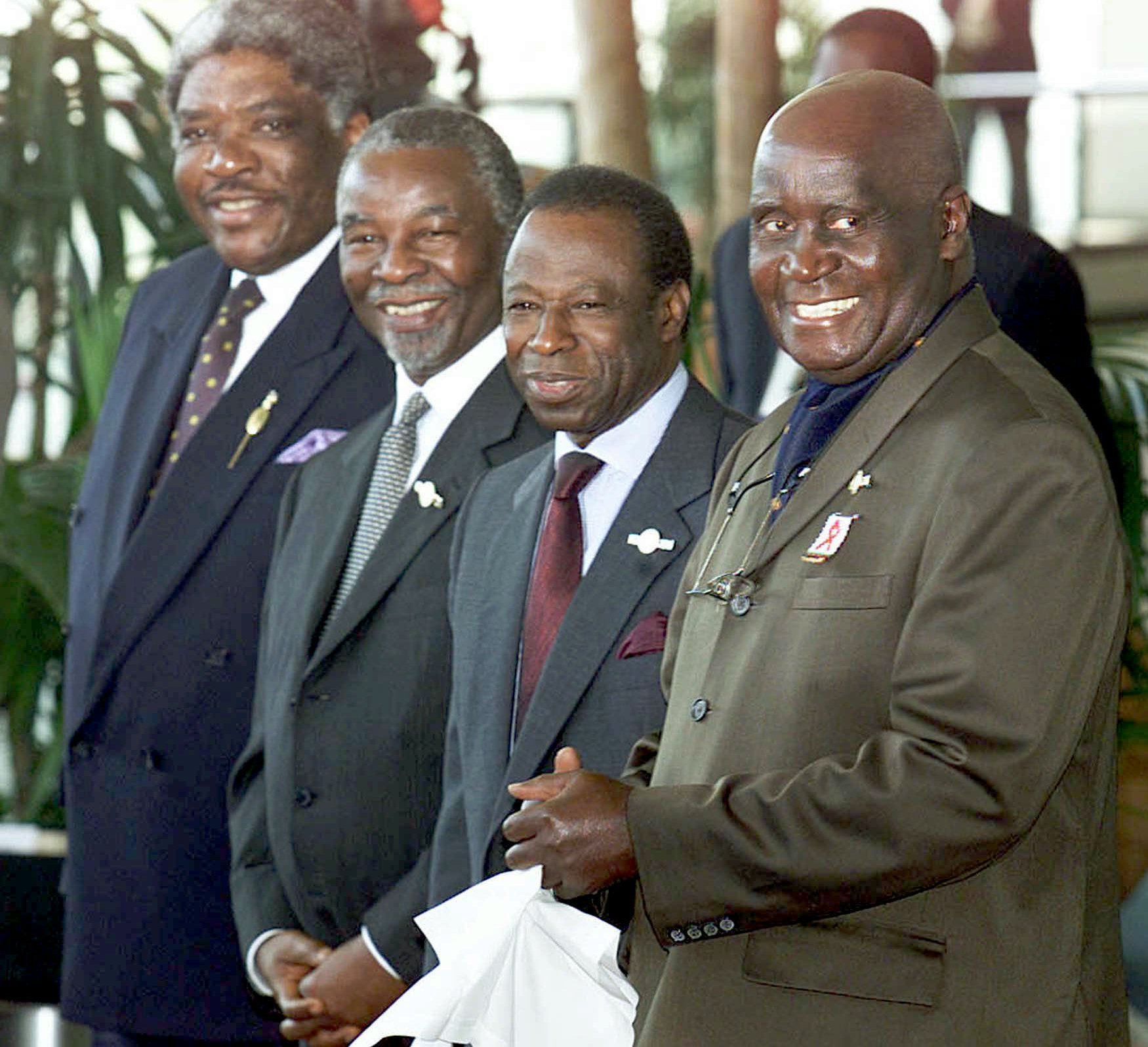
Beneficiaries of Dr. Kaunda’s generosity reflected on his contribution and support.
“This hero stood against the might of the racist South African government and protected us in our struggle at every step,” said Lindiwe Sisulu, South African minister of human settlements, water, and sanitation. Her father, the late anti-apartheid fighter Walter Sisulu, was jailed along with Nelson Mandela and members of her family were exiled in Zambia.
“Today we are a free country because people like him understood the historic mission we had,” tweeted Ms. Sisulu.
Former South African President Thabo Mbeki who spent many years exiled in Zambia and grew close to the late statesman called Dr. Kaunda “one of the architects of a democratic South Africa.”
Mr. Mbeki told SABC News that Dr. Kaunda carried the total liberation of Africa close to his heart. “It was part of his agenda; it was not a by-the-way thing, which he can attend to tomorrow,” said Mr. Mbeki.
South African President Cyril Ramaphosa declared 10 days of national mourning with flags half-mast. The debt of gratitude to Dr. Kaunda can never be adequately repaid, he said. “He stood alongside the people of South Africa at the time of our greatest need … unwavering in his desire for the achievement of our freedom,” said President Ramaphosa.
Similar decrees and tributes poured in for the late president from leaders across Africa and the world.
After Zambia achieved her independence in southern Africa, Dr. Kaunda actively helped his neighboring nations acquire independence.
Along with South Africa, periods of mourning and national flags lowered to half-mast were decreed in Botswana, Namibia, and Tanzania, with each declaring seven days of official mourning, and Zimbabwe announced a three-day period of mourning.
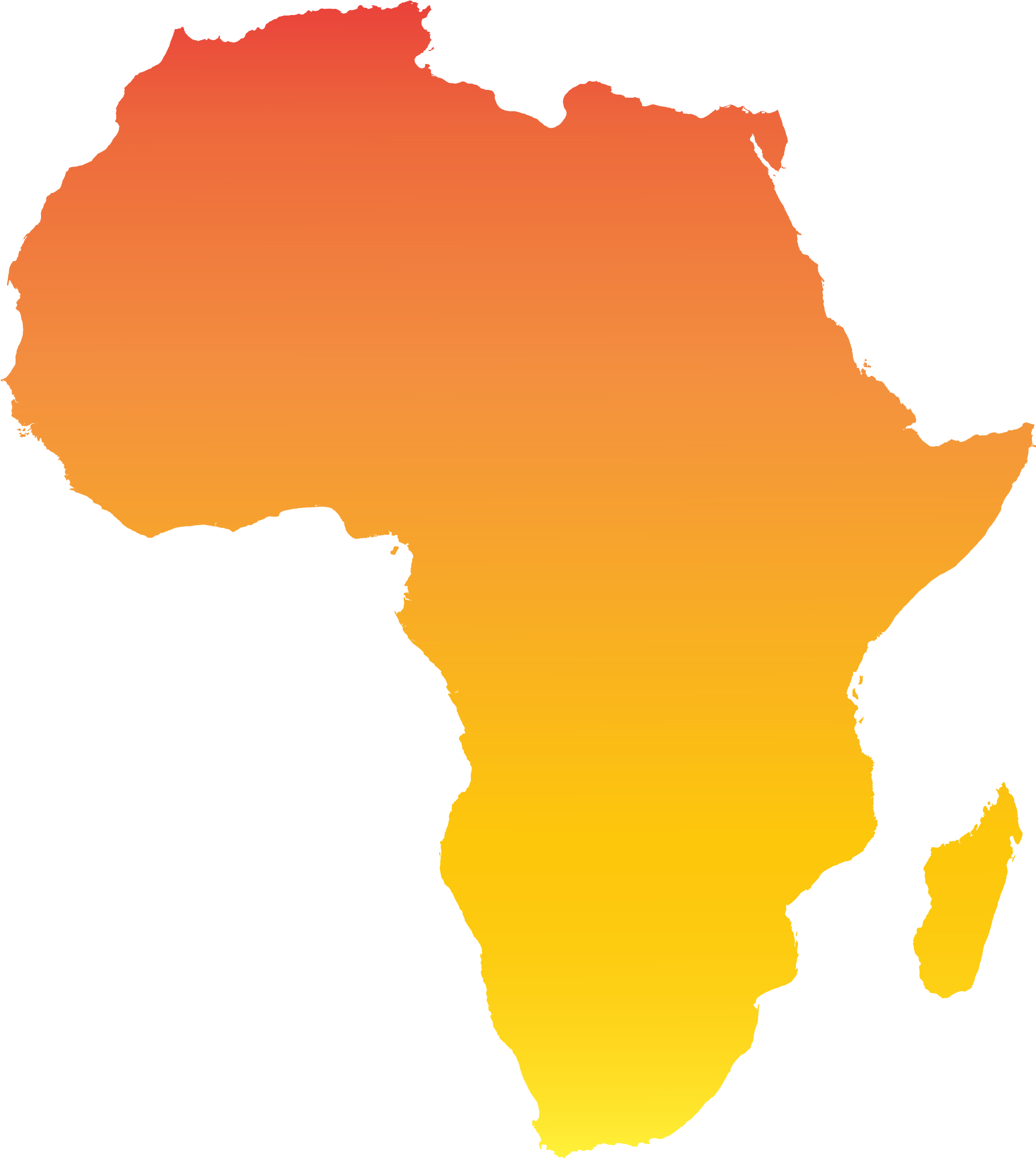
President Hage Geingob of Namibia observed, in a statement, that Africa lost “a giant of a man.”
“Kenneth Kaunda was a generous, affable, and a resolute leader who freed our region from colonialism,” said President Geingob.
Rwandan President Paul Kagame tweeted Dr. Kaunda’s “commitment to Africa’s liberation will never be forgotten.” “His leadership on the continent and legacy of Pan-Africanism will live on for generations to come,” he said.
For others Dr. Kaunda’s passing marked the end of an era of “true African Revolutionaries” and “visionaries” who chose to stand for oppressed people and whose work must be completed.
“The last giant has fallen,” said Dr. Arkana Chihombori-Quao, former African Union ambassador to the United States. She told The Final Call, President Kaunda was the last living “Pan African father” responsible for the historic 1963 founding of the Organization of African Unity that developed into the African Union as part of a vision for a Unified Africa.
“It’s sad that his passing, as the last Pan African father, is before we can attain a true United States of Africa, a true creation with an Africa that speaks with one voice,” said Amb. Chihombori-Quao. We have a responsibility to continue and create the unity of purpose for a United States of Africa, she said.
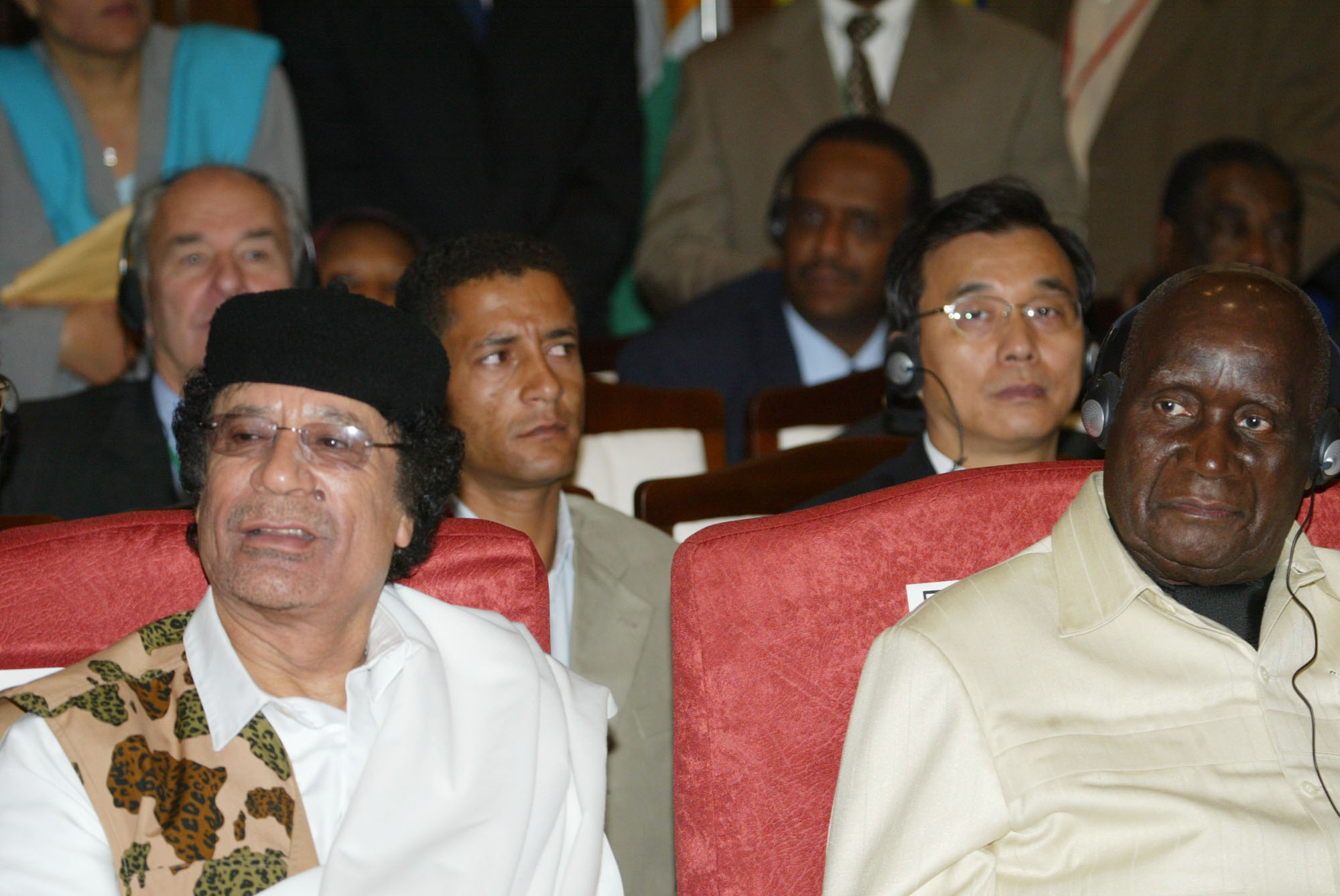
A life in the struggle
Kenneth David Kaunda was born in the Zambian town of Chinsali, then part of Northern Rhodesia, on April 28, 1924. He was the youngest of eight children, and like his parents became a teacher in colonial Zambia and Tanzania. His father was also a Presbyterian pastor. In the latter 1940s, he became involved in politics through the Northern Rhodesian African Congress. He rose through the ranks of the group becoming its secretary general, which by 1953 became the African National Congress (ANC)—unrelated to South Africa’s African National Congress.
Dr. Kaunda pushed for resistance against the White minority rulers and was arrested and imprisoned in 1955. By 1957, under the auspices of the Labor Party, he traveled to Britain to study parliamentary systems. Upon his return and disenchantment with the too moderate stance of ANC leadership, he formed the Zambian African National Congress in 1958, which the colonial government banned. In December 1958, he participated in the first All African People’s Conference in Accra, Ghana, convened by President Nkrumah where he met many of the leaders of Africa’s independence struggles.
After another politically related prison term, in 1960 he was elected president of the newly formed United National Independence Party. As a revolutionary championing Black self-determination and freedom, he fought “White Afrikaners” and “Boers”—White minority leaders in southern Africa. His was a call to break the yoke of colonialism and foreign domination. He stirred Zambians as well as Blacks in the Diaspora from the beginning.
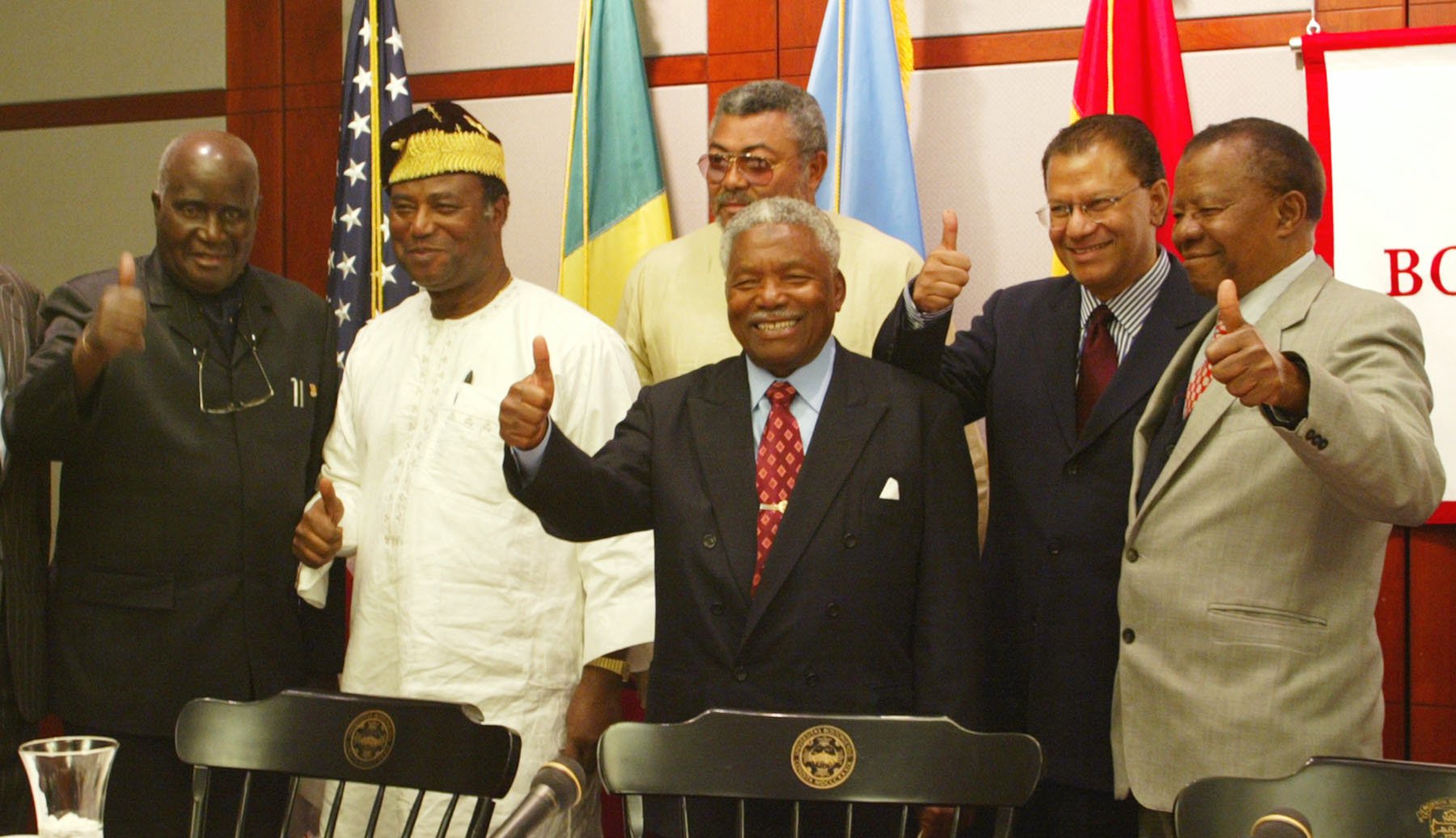
“FreeDOM Africa,” cried Dr. Kaunda, to a Harlem, N.Y. crowd in 1960. “Now! Now! Now!” the audience screamed back. “Free-Dom Af-ri-ca!” he yelled more rapidly, reaping a more frenzied response: “Now! Now! Now!” reported a New York Times article.
At the time, Zambia was still a White European settler state which he was determined to change. In January 1964 after a successful electoral campaign, he became prime minister of Northern Rhodesia. By October 1964, amid anticolonial pressure campaigns organized by Dr. Kaunda and other nationalist leaders, Britain caved in to demands for an independent Zambia.
Dr. Kaunda served as president under a one-party system until 1991, when the tides of Africa’s political waters shifted, sparking calls for multiparty elections in Zambia.
Being defeated at the ballot, he stepped down to hand power to longtime political foe Fredrick Chiluba.
Despite accusations of wrongdoing leveled at his party, he respected and bowed to the will of the people and led an orderly transition of power and urged peace.
“Those who go into opposition are still an active catalyst for good government, indeed an integral part of good government,” he told Zambians in a national broadcast after the vote.
In 1996, Dr. Kaunda tried to make a political comeback, but was prevented when President Chiluba amended the constitution to declare the former “Father of the Nation” a foreigner, based on his parent’s lineage in Malawi.
Dr. Kaunda was arrested in December 1997 and charged with treason following a coup attempt by junior army officers two months earlier. He was held in a maximum-security prison but later placed under house arrest until the government dropped the charges.
Although not always an easy political situation for him in Zambia, he remained actively engaged in promoting the interests of Africa. He was a respected voice on the continent, from mediating in conflicts to his anti-AIDS campaigns.
He formed the Kenneth Kaunda Peace Foundation dedicated to conflict resolution and eradicating poverty and HIV/AIDS in Africa. Dr. Kaunda used his stature in the battle against AIDS. At the height of the pandemic, during a 1987 televised news conference he disclosed his fifth son, Masuzgo, perished from the illness.
President Kaunda, the Nation of Islam and Africa
The transition of Dr. Kaunda and his relationship with Minister Farrakhan offers an important look into Nation of Islam involvement and influence in Africa. Both men were called on by African leaders as experienced voices of guidance.
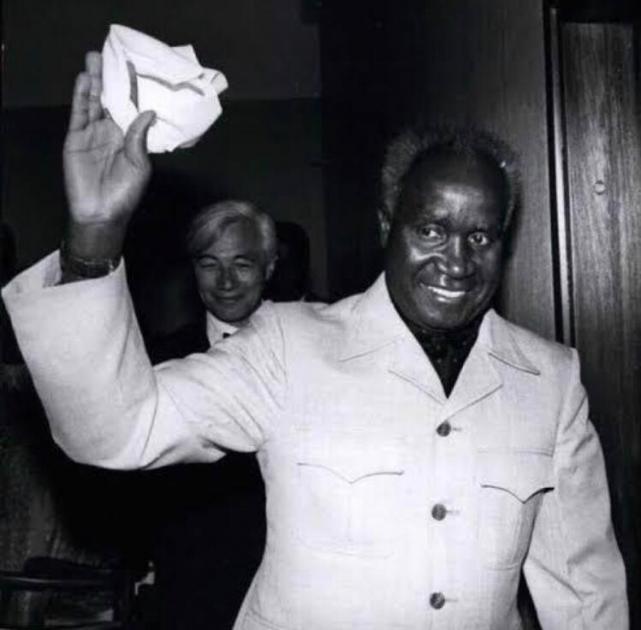
Abdul Akbar Muhammad is an emissaryand advisor to Minister Farrakhan on Africa. He told The Final Call NOI engagement in the Motherland extends back generations.
“It’s what we call the wise men of Africa. It was a term Muammar Gadhafi used. These were the men and women who shaped movements in Africa,” explained Min. Akbar Muhammad.
Since the days of the Honorable Elijah Muhammad and Muhammad Speaks Newspaper of the 1960s and 1970s featuring stories on events and happenings in Africa, the Nation was connected to the continent and informed Black America.
“Muhammad Ali made an impact on Africa, that encouraged readers to learn more about Africa, ” observed Min. Akbar Muhammad. “As history would shape it, Malcolm’s movement around Africa,” he continued, “It wasn’t just Malcolm. It was Malcolm as a former representative of the Honorable Elijah Muhammad that had an impact.”
Min. Akbar Muhammad said it is important to note when Minister Farrakhan was appointed in New York as the Honorable Elijah Muhammad’s representative, it exposed the Nation of Islam to many African ambassadors at the United Nations.
Minister Farrakhan made his first trip to Africa in the 1970s on an invitation to the Honorable Elijah Muhammad by Uganda’s President Idi Amin and visited several nations.
However, a major instance of the Nation of Islam on the world stage was when Minister Farrakhan addressed the World Mathaba conference in the 1980s in Libya where he spoke to representatives of 86 nations. “His notoriety spread across Africa like wildfire and the rest is history. So, we had an impact on Africa … where the young people and leaders began to hear and know the name Louis Farrakhan,” said Mr. Muhammad.
But historically, it was the Million Man March that propelled Minister Farrakhan and the Nation of Islam globally. The image of over one million Black men, the call for atonement, reconciliation and responsibility resonated with leaders across the continent struggling with geopolitical problems.
The Million Man March served as a catalyst to open Africa’s doors to Min. Farrakhan. “Brother leader Gadhafi assisted in this, and it was President Rawlings who connected Minister Farrakhan with Dr. Kaunda as the Minister was called on as a peacemaker,” explained Min. Akbar Muhammad.
“Kenneth Kaunda will always be remembered as a voice of reason in the midst of chaos and confusion,” said Minister Farrakhan.
Undergirding Mr. Kaunda’s public life was a family life anchored by his wife Betty Kaunda who he married in 1946 and their eight children. The former first lady passed away in 2012.
Beside the people and government of Zambia and freedom loving people worldwide, Dr. Kaunda is survived by six children, many grand and great grandchildren.












